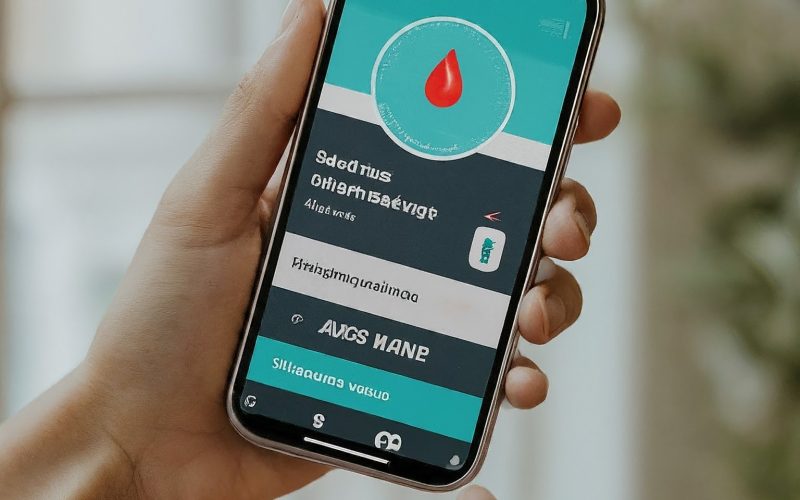Introduction
In today’s fast-paced world, technology has infiltrated nearly every aspect of our lives. Healthcare is no exception. For individuals living with diabetes, digital advancements offer a new frontier of hope and control. Dr. Emily Carter, a leading expert in endocrinology and digital health, believes that technology is poised to revolutionize diabetes management. In this article, we delve into the exciting world of diabetes technology, exploring the latest innovations and their impact on patient care.
The Rising Tide of Diabetes: A Global Challenge
Diabetes, a chronic condition characterized by elevated blood sugar levels, is surging worldwide. The prevalence of both Type 1 and Type 2 diabetes has skyrocketed in recent years, posing a significant public health crisis. This epidemic is driven by a complex interplay of factors, including genetic predisposition, sedentary lifestyles, and unhealthy diets.
The human and economic toll of diabetes is immense. Individuals with diabetes face a heightened risk of heart disease, stroke, kidney failure, blindness, and amputations. The healthcare costs associated with managing the condition are staggering, placing a substantial burden on individuals, families, and healthcare systems.
As the number of people with diabetes continues to climb, there is an urgent need for innovative approaches to prevention, treatment, and management. This is where technology steps in, offering a beacon of hope for those affected by this chronic disease.
The Role of Technology in Diabetes Management
The advent of technology has ushered in a new era of diabetes management. From monitoring blood glucose levels to delivering insulin, digital innovations are empowering individuals to take control of their health.
Continuous Glucose Monitors (CGMs)
Continuous Glucose Monitors (CGMs) have revolutionized diabetes care by providing real-time glucose data. These wearable devices offer unparalleled insights into blood sugar patterns, enabling individuals to make informed decisions about diet, exercise, and insulin dosing. By identifying trends and predicting potential hypoglycemic or hyperglycemic events, CGMs significantly reduce the risk of dangerous fluctuations.
Insulin Pumps
Insulin pumps offer a more flexible and precise approach to insulin delivery compared to traditional injections. These devices allow users to adjust insulin doses based on real-time glucose readings, meal intake, and physical activity. Insulin pumps have been shown to improve blood sugar control and quality of life for many people with diabetes.

Innovative Diabetes Apps: Your Digital Health Companion
The rise of smartphones has paved the way for a plethora of diabetes management apps. These digital tools offer a range of features designed to support individuals in their diabetes journey. From tracking blood glucose levels and carbohydrate intake to providing personalized meal plans and exercise recommendations, diabetes apps have become indispensable companions for many.
These apps often incorporate educational resources, community forums, and integration with smart devices, creating a comprehensive platform for diabetes self-management. By empowering individuals to actively participate in their care, diabetes apps contribute to improved health outcomes and quality of life.
Smart Wearables: Tracking and Controlling Blood Sugar Levels
Smart wearables have emerged as powerful tools for diabetes management. Beyond traditional glucose monitoring devices, wearables offer a holistic approach to tracking various health metrics, including heart rate, sleep patterns, and physical activity. By integrating this data with blood sugar information, individuals can gain valuable insights into the factors influencing their glucose levels.
Smartwatches and fitness trackers equipped with glucose monitoring capabilities provide continuous data streams, enabling users to make real-time adjustments to their lifestyle and medication. These devices also offer features like automated insulin delivery, vibration alerts for low or high glucose levels, and integration with diabetes management apps, enhancing convenience and safety.
The Power of Data: Personalized Diabetes Care
The explosion of data generated by diabetes management tools presents a unique opportunity for personalized care. By analyzing patterns in glucose levels, insulin dosing, and lifestyle factors, healthcare providers can gain valuable insights into an individual’s metabolic profile. This data-driven approach enables the development of tailored treatment plans, medication adjustments, and lifestyle recommendations.
Advanced analytics and artificial intelligence are transforming diabetes care by identifying correlations between various factors and blood sugar levels. Predictive models can help anticipate hypoglycemic or hyperglycemic events, allowing for proactive interventions. Moreover, data sharing between patients and healthcare providers facilitates collaborative decision-making and improved outcomes.
Challenges and Opportunities in Diabetes Technology
While diabetes technology has made significant strides, challenges persist in its widespread adoption and optimization. Cost, accessibility, and data privacy concerns are among the primary hurdles. Additionally, the complexity of diabetes management requires ongoing research and development to refine existing technologies and introduce innovative solutions.
Despite these challenges, the potential of diabetes technology is immense. Continued advancements in artificial intelligence, machine learning, and sensor technology hold promise for even more personalized and effective diabetes care. Furthermore, integrating diabetes technology with other healthcare domains, such as mental health and nutrition, can create a comprehensive approach to diabetes management.
The Future of Diabetes Management: A Digital Horizon
The trajectory of diabetes care is undeniably shifting towards a digital landscape. As technology continues to evolve at an unprecedented pace, we can anticipate groundbreaking advancements that will revolutionize diabetes management.
Closed-loop systems, which combine insulin pumps with continuous glucose monitors, represent a significant step forward. These systems automate insulin delivery based on real-time glucose readings, reducing the burden of manual insulin dosing and improving blood sugar control. Additionally, artificial pancreas systems are under development, aiming to replicate the functions of a healthy pancreas.
The integration of artificial intelligence (AI) and machine learning will play a pivotal role in optimizing diabetes care. AI algorithms can analyze vast amounts of data to identify patterns, predict complications, and personalize treatment plans. Furthermore, virtual reality and augmented reality technologies offer potential for immersive diabetes education and training.
Ultimately, the future of diabetes management envisions a world where individuals with diabetes can live full and independent lives with minimal disruption. Technology will be the driving force behind this transformation, empowering people to take control of their health and achieve optimal outcomes.
Conclusion
The convergence of technology and healthcare has ushered in a new era of diabetes management. From monitoring glucose levels to delivering insulin, digital innovations are transforming the way individuals with diabetes live their lives. While challenges remain, the future of diabetes care is undeniably bright. By embracing technology and fostering collaboration between patients, healthcare providers, and researchers, we can work towards a world where diabetes is effectively managed and its impact minimized.
Ultimately, the goal is to empower individuals with diabetes to live full, healthy, and independent lives. With continued advancements in technology and a patient-centered approach, this vision is becoming increasingly attainable.










